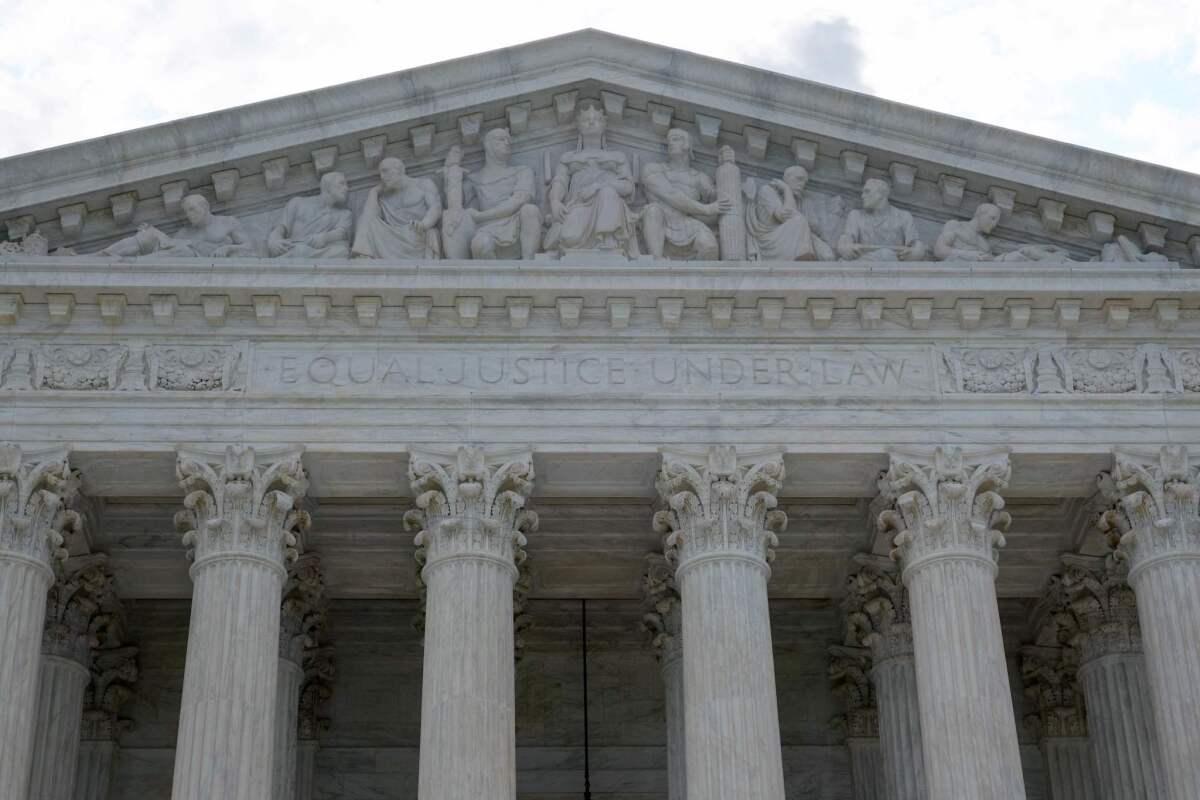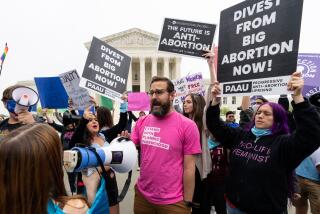Opinion: Obamacare dodges another bullet at the Supreme Court

The U.S. Supreme Court building in Washington, D.C., as seen in August 2015.
The Supreme Court declined on Tuesday to take a third swing at the 2010 Patient Protection and Affordable Care Act, better known as Obamacare. It was the right call because the case -- Sissel vs. U.S. Department of Health and Human Services -- was built on a fanciful vision of how Congress should operate.
Matt Sissel, an artist in Oregon, sued the federal government because he doesn’t want to buy health insurance, as required by the ACA. When the Supreme Court upheld the law’s individual mandate in 2012, Sissel’s initial claims appeared to be dead. But with the help of the conservative Pacific Legal Foundation, he found a clever way to assert a new challenge to the entire law.
See the most-read stories this hour >>
Because the justices had found the individual mandate to be a valid exercise of Congress’ power to tax (the mandate is enforced with tax penalties), Sissel claimed the ACA was a tax bill. And because the text of the law was written by the Senate, his lawyers argued, it violated the clear constitutional requirement that tax legislation originate in the House.
Their position was rejected, however, by a district court judge, a three-judge appellate panel and the full Court of Appeals for the D.C. Circuit, which declined to reconsider the case last year. The Supreme Court denied Sissel’s petition for certiorari Tuesday without comment.
Pacific Legal Foundation attorney Timothy Sandefur issued a statement expressing his disappointment shortly thereafter.
“At issue was the Constitution’s Origination Clause, which requires all new taxes to start in the House, the chamber closest to the people,” Sandefur stated. “Obamacare is a massive tax bill, but it was launched in the Senate through a procedural ploy. The Senate’s subversion of the constitutionally mandated rules for tax bills is a danger not just in this case but in future cases as well. By allowing Congress to use procedural tricks to evade the constitutional rules, the Court has opened the door to Congress further evading democratic accountability for the laws it passes.”
That’s wrong on all sorts of levels. The ACA raises money not to feed the Treasury but to pay for the programs it created, so it’s a “tax bill” only in the sense that the measures that created Social Security or Medicare are tax bills. And it’s laughable to suggest that there’s been no democratic accountability for Obamacare. It may be the principal reason Republicans now control both chambers of Congress.
Besides, the Pacific Legal Foundation’s case ignored how the ACA became law.
The bill that President Obama signed was originally a House bill (HR 3590), written by the tax-writing Ways and Means Committee, that extended some expiring tax credits and raised revenue to pay for them. Sissel’s attorneys claimed that the Senate’s amendment to the House bill -- the text of the ACA -- wasn’t germane, but there’s no germaneness requirement in the Constitution.
Beyond that, what the Senate did was a routine procedural maneuver, not an effort to usurp the powers of the House. It’s done all the time, with no love lost over germaneness. Once the House sends over a bill that raises revenue, it’s well understood that the Senate can and will use that measure as a vehicle for its own tax-related proposals.
More important, the Senate wasn’t the first to adopt the individual mandate. A version was included in the House’s Obamacare bill, HR 3962, which that chamber passed shortly before the Senate began debating the ACA. Then-Senate Majority Leader Harry Reid (D-Nev.) couldn’t bring HR 3962 to the Senate floor because it included a public option that a key independent senator, Joe Lieberman of Connecticut, had pledged to help Republicans block with a filibuster. That’s why HR 3590 became the vehicle instead of the House’s healthcare bill.
The lower courts rejected Sissel’s case because, in their view, the ACA not only originated in the House, it wasn’t covered by the Constitution’s origination clause because its main purpose wasn’t “for raising revenue.” A few appeals court judges disagreed with the latter assessment, arguing that any bill that generated as much tax revenue as the ACA had to be covered. But they also rejected Sissel’s argument that any Senate amendment to a House revenue bill had to be germane.
Sissel’s case would have put the Supreme Court in a position to give the House great -- even unprecedented -- control over the tax code. If the justices imposed a germaneness requirement on Senate amendments, the House alone could decide not just whether Congress should take up a revenue-raising bill, which is clearly its prerogative today, but also the breadth of any tax-reform effort, which sections of the code would be off-limits to amendment, and potentially whether Congress included a way to pay for the new programs it enacted.
Happily, the court turned away the Pacific Legal Foundation’s entreaty. And so the ACA survives yet again.
Follow Healey’s intermittent Twitter feed: @jcahealey
MORE FROM OPINION
The religious culture war over gays is ecumenical
Does killing urban coyotes create more problems than it solves?
L.A. housing is expensive, sure. But are you paying too much for your rental?
More to Read
A cure for the common opinion
Get thought-provoking perspectives with our weekly newsletter.
You may occasionally receive promotional content from the Los Angeles Times.











